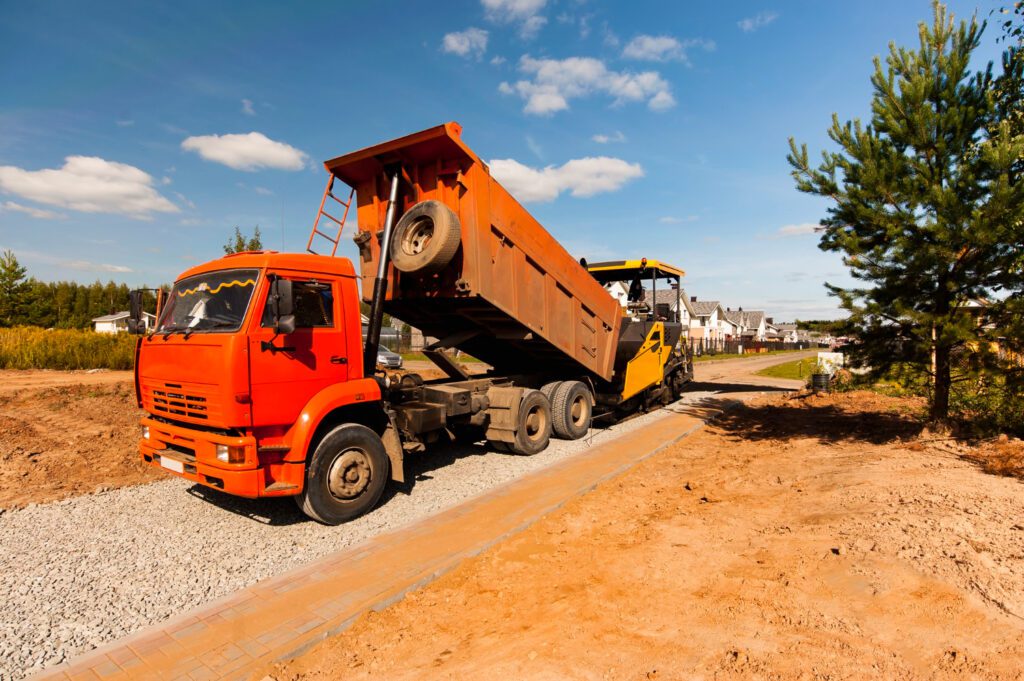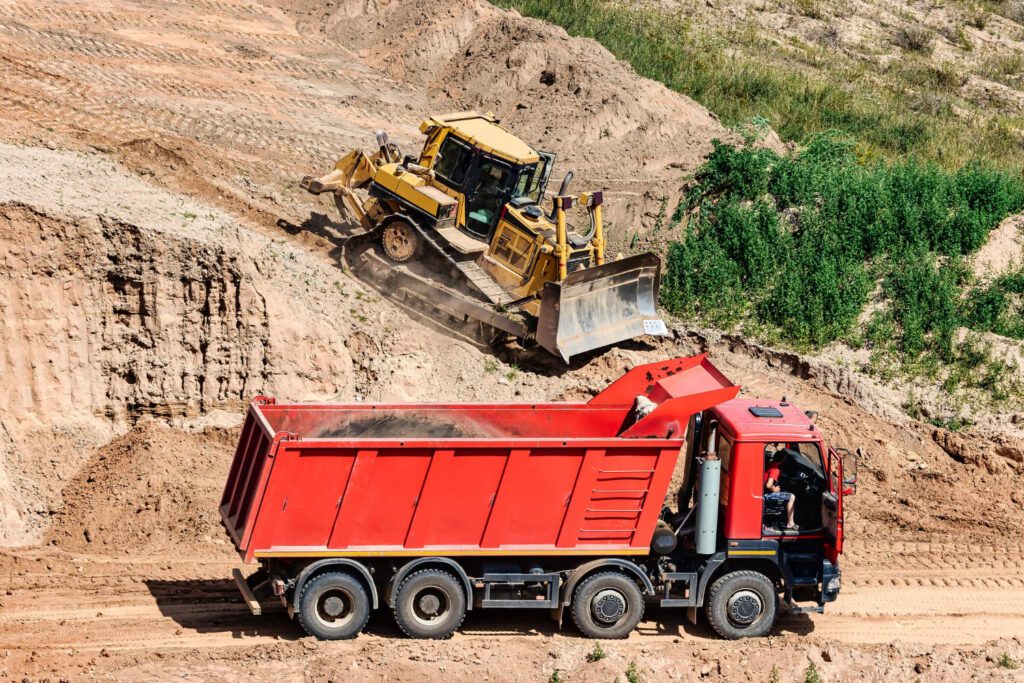Frame type dump trucks are workhorses on construction sites, but their size and heavy loads make them prone to tipping. Understanding how to keep these trucks stable is key to preventing dangerous accidents. Ensuring the safety of these large vehicles requires understanding the unique challenges they face and implementing effective strategies to keep them stable.
Frame type dump trucks often operate on uneven terrain, where stability is constantly challenged. The shifting weight of the load, combined with the truck’s high center of gravity, can make these vehicles prone to tipping, especially if not handled correctly. Identifying and addressing these stability challenges is a critical first step in preventing accidents and maintaining safe operations.
There are several daily maintenance checks that can significantly reduce the risk of tipping. By conducting thorough inspections and following best practices for loading and unloading, operators can keep their trucks stable and secure. Additionally, incorporating advanced technology like anti-tip kits can further enhance safety by providing real-time monitoring and automatic adjustments to prevent tipping incidents. As we explore these steps in detail, we aim to equip you with practical knowledge to keep your frame type dump truck safe and efficient.
Understanding the Stability Challenges of Frame Type Dump Trucks
Frame type dump trucks come with unique stability challenges that can make tipping more likely—especially on uneven terrain or during sharp turns.One of the main issues comes from their high center of gravity, especially when the dump bed is fully loaded and raised. This makes the truck more prone to tipping, especially during turns or if the load shifts unexpectedly.
Another challenge is the type of terrain these trucks often operate on. Uneven ground, slopes, and rough surfaces can destabilize the vehicle, causing it to tip. Drivers need to be extra careful when navigating these conditions to maintain balance. The weight of the load also affects stability; heavy, unevenly distributed loads can put additional stress on the truck’s frame, leading to potential tipping.
Weather conditions like strong winds or wet and slippery surfaces can further complicate stability. These factors can affect the truck’s traction and balance, making it essential for operators to adjust their driving techniques accordingly. Understanding these challenges helps operators take the necessary precautions to keep their frame type dump trucks stable.
Daily Maintenance Checks to Prevent Tipping
Daily maintenance checks are crucial for keeping your frame type dump truck stable and preventing tipping accidents. These checks ensure that the truck is in optimal condition and can handle the demanding tasks ahead. Here are some essential steps to include in your daily maintenance routine:
1. Tire Inspection: Check the tires for proper inflation and look for any signs of wear or damage. Well-maintained tires are crucial for stability, especially when carrying heavy loads.
2. Brake System: Inspect the brakes to ensure they are working correctly. Effective brakes are vital for controlling the truck’s speed and stopping power, which are essential for preventing tipping.
3. Hydraulic System: Examine the hydraulic system for leaks or damage. A well-functioning hydraulic system is necessary for safely raising and lowering the dump bed.
4. Load Securement: Ensure that the load is properly secured and evenly distributed. An uneven load can easily cause the truck to tip over, especially during turns or sudden stops.
5. Lights and Signals: Test all lights and signals to make sure they are operational. This is important for safety and communication with other vehicles, especially in low-visibility conditions.
By performing these daily maintenance checks, we can identify and address potential issues before they become serious problems. Regular inspections help ensure that the truck is safe to operate, reducing the risk of tipping accidents and keeping operations running smoothly.
Best Practices for Loading and Unloading
Loading and unloading your dump truck properly is one of the easiest ways to prevent tipping. Following these best practices can help maintain stability and safety:
1. Even Load Distribution: Always distribute the load evenly across the dump bed. Avoid piling material too high or concentrating it in one area, as this can create an imbalance and increase the risk of tipping.
2. Secure the Load: Ensure the load is properly secured with straps or covers to prevent it from shifting during transit. A shifting load can quickly destabilize the truck, especially when turning or stopping suddenly.
3. Flat Ground: Perform loading and unloading on flat, stable ground whenever possible. Uneven surfaces can cause the truck to tilt, making it more likely to tip over.
4. Avoid Overloading: Do not exceed the truck’s weight capacity. Overloading puts undue stress on the vehicle’s frame and tires, compromising stability and increasing the risk of tipping.
5. Monitor the Weather: Weather conditions can affect loading and unloading. Avoid these tasks in high winds or wet conditions that can make the ground slippery and impact stability.
By following these best practices, we can reduce the risk of tipping during loading and unloading, making frame type dump truck operations safer and more efficient.
How Advanced Technology, Like Anti-Tip Kits, Enhances Safety
Anti-tip kits are game changers when it comes to preventing tipping in frame type dump trucks. These kits provide several benefits that help prevent tipping accidents.
1. Real-Time Monitoring: Anti-tip kits are equipped with sensors that monitor the truck’s stability in real time. These sensors detect any imbalances or shifts in the load and relay this information to the driver.
2. Automatic Adjustments: When a potential tipping hazard is detected, the anti-tip kit can automatically adjust the dump bed’s position or redistribute the load to regain stability. This quick response helps prevent accidents.
3. Driver Alerts: Anti-tip kits often include alert systems that notify the driver when a tipping hazard is imminent. These alerts can be visual or auditory, providing timely warnings that allow the driver to take corrective action.
4. Enhanced Control: By providing real-time data and automatic adjustments, anti-tip kits give drivers better control over their vehicles, especially when operating on uneven terrain or with heavy loads.
Using advanced technology like anti-tip kits significantly improves the safety and stability of frame type dump trucks. These systems act as an extra layer of protection, ensuring that the truck remains stable and preventing tipping accidents before they occur.
Conclusion
Preventing tipping in frame type dump trucks starts with understanding their stability challenges and taking the right safety measures. By conducting regular maintenance checks, following best practices for loading and unloading, and incorporating advanced technology like anti-tip kits, we can enhance the safety and stability of these vehicles.
Daily checks help identify potential issues before they become significant problems, making sure the truck is always in good working condition. Safe loading and unloading techniques ensure the load is balanced and secure, reducing the risk of tipping. Advanced technology such as anti-tip kits adds a vital layer of protection, providing real-time monitoring and automatic adjustments to maintain stability.
Ensuring the safety of frame type dump trucks not only protects the equipment but also the operators and workers around them. For comprehensive solutions to stability challenges, consider exploring anti-tip kits from Wink Anti Tip. Our advanced technology can help keep your trucks safe and stable, preventing tipping accidents and enhancing overall operational efficiency. Contact us today to learn how Wink Anti Tip can benefit your fleet and improve safety on the job.




0 Comments